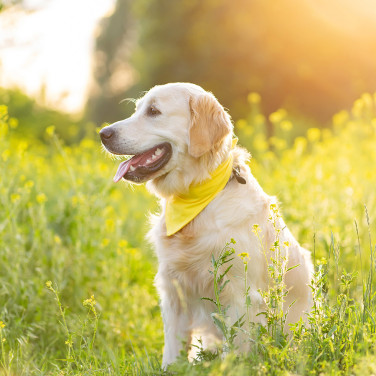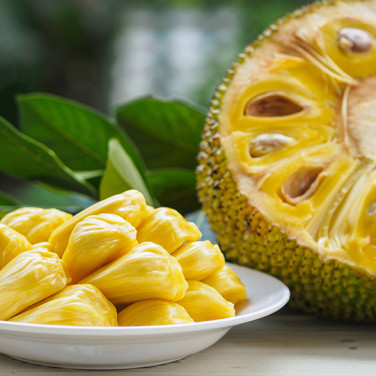FOOD
Can Dogs Have Beets? Are Beets Good for Dogs?
페이지 정보
본문


Can dogs have beets? YES!
Beets can be a great addition to a dog's diet, as their nutritional content can help support their immune system, digestive system, and coat and skin health. However, there are some risks to consider when preparing beets for your furry buddy and we will go over all of them to ensure the best way to serve them for your dog. As long as you follow the general guideline when it comes to feeding snacks, healthy or not-so-healthy, you can ensure to avoid any potential issues in adding beets to your dog’s diet.
Health benefits of feeding beets to dogs

Beets are rich in essential nutrients such as vitamin C, vitamin A, calcium, iron, magnesium, and potassium, all of which are essential for maintaining overall healthy bodily functions. These nutrients are known to support a healthy immune system, improve bone health, promote blood circulation, and aid digestive function. Below are some of the specific health benefits that dogs can gain from adding a little bit of beets to their diet.
-
Antioxidant
Beets contain betaine, an antioxidant that can benefit your dog’s immunity and prevent cell damage. Additionally, betaine can improve your dog's liver function, aiding in the elimination of toxins.
-
High-fiber
The fiber in beets can help improve digestive function and effectively prevent constipation when consumed in the recommended daily amount.
-
High-water content
The high water content in beets is important for removing waste from your dog's body and maintaining their body temperature.
-
Nutrient-rich
Beets are rich in nutrients such as vitamin A, vitamin C, iron, and magnesium, which help boost your dog's overall health. Vitamin A helps maintain good eye health and vitamin C strengthens the immune system. Calcium is essential for maintaining healthy bones and iron plays an important role in improving blood circulation. Magnesium and potassium found in beets can help maintain a healthy heart and improve muscle function.
Best way to serve beets for your dog

Beets, as a vegetable, contain sugar. Therefore, if your dog is dealing with diabetes or obesity, it's essential to feed them in appropriate quantities. Additionally, as with any treat, beets should not surpass the suggested daily nutrient intake for your dog, which should be less than 10% of their daily diet.
Ensure that you remove the skin and wash beets thoroughly before feeding them to your dog. This is because beets are grown in soil and may contain dirt, which could potentially disrupt your dog's digestive system.
Giving boiled beets to your dog is a better option compared to raw ones. Boiling softens the fiber of the beets, which can aid in your dog's digestive function. Additionally, boiling the beets increases their nutrient content, which can further improve digestion. Therefore, it is recommended to cook the beets before serving them to your dog.
To avoid the risk of choking your dog, it's important to cut the beet into small pieces before feeding it. Feeding beets in large pieces could potentially lead to choking, so it's best to err on the side of caution and cut it as small as possible.
To ensure that puppies are fed beets properly, it is important to maintain the appropriate amount and frequency. If your puppy is being introduced to beets for the first time, it is recommended to begin with a small quantity and gradually increase it to help them get used to it.
Precaution when feeding beets to dogs
When feeding beets to your puppy, there are a few things to know before adding this vegetable to their diet. While beets have many benefits listed above for a dog’s overall health, there are some caveats to consider.
-
Gastrointestinal problems
Beets are a vegetable known for their acidic properties that can aid in a dog's digestion. However, overfeeding this vegetable can lead to stomach strain and other digestive issues. It is always recommended to feed any snacks in moderation. Snacks should typically make up less than 10% of your dog’s daily recommended food intake. Consider feeding a few small pieces of beet here and there for a healthy boost!
-
Bladder stones
Beets are known to contain oxalates, which can absorb minerals and form crystals that can lead to the formation of bladder stones. For this reason, particularly, it is advisable to limit your pet's consumption of beets and avoid health risks.
-
Food allergy
When it comes to adding any new food items to a dog’s diet, there is always an added risk of a potential allergic reaction. It is best practice to offer a small amount and monitor your dog for any signs of an allergic reaction. If your puppy shows any signs of an allergy, it is recommended to stop feeding and contact your veterinarian immediately.
Signs of an allergic reaction to look out for:
- Skin problems: hives, facial swelling, itchiness
- Digestive problems: vomiting and diarrhea
- Shortness of breath
Ever wonder what other vegetable dogs can eat safely?

Does your dog also give you puppy dog eyes when you're snacking on something? You may know that certain foods like chocolate shouldn't be shared with them, but do you always check online to see if it's okay to give them a bite of what you're eating? The Buddydoc Food Dictionary has information on hundreds of human foods and whether they are safe and nutritious for pets. If you want to know more about other foods, try looking them up on Buddydoc!













